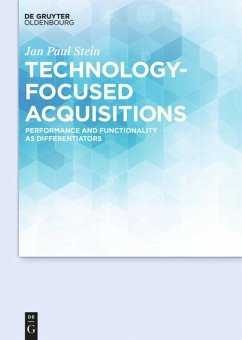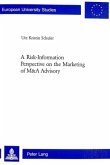Technology-focused acquisitions are an important complement to the firm's internal product development efforts. There is considerable heterogeneity when comparing individual technology-focused acquisitions - especially with respect to acquisition timing and the deal value.
To resolve some of this heterogeneity the author introduces the novel distinction between performance- and functionality-focused acquisitions. He characterizes this distinction based on a theoretical analysis, a qualitative study, and turns to a sample of acquisitions in the field of artificial intelligence for the quantitative study.
There are two key findings. First, performance-focused acquisitions take place earlier in a target's life cycle than functionality-focused ones. Second, the deal value is - at a comparable stage in a target's life cycle - higher for performance-focused acquisitions.
This thesis is relevant for management scholars and managers alike: Scholars learn about the implications of the distinction between performance- and functionality-focused acquisitions on markets for technology. Managers gain insights into how this distinction may guide their strategic decision making.
To resolve some of this heterogeneity the author introduces the novel distinction between performance- and functionality-focused acquisitions. He characterizes this distinction based on a theoretical analysis, a qualitative study, and turns to a sample of acquisitions in the field of artificial intelligence for the quantitative study.
There are two key findings. First, performance-focused acquisitions take place earlier in a target's life cycle than functionality-focused ones. Second, the deal value is - at a comparable stage in a target's life cycle - higher for performance-focused acquisitions.
This thesis is relevant for management scholars and managers alike: Scholars learn about the implications of the distinction between performance- and functionality-focused acquisitions on markets for technology. Managers gain insights into how this distinction may guide their strategic decision making.








